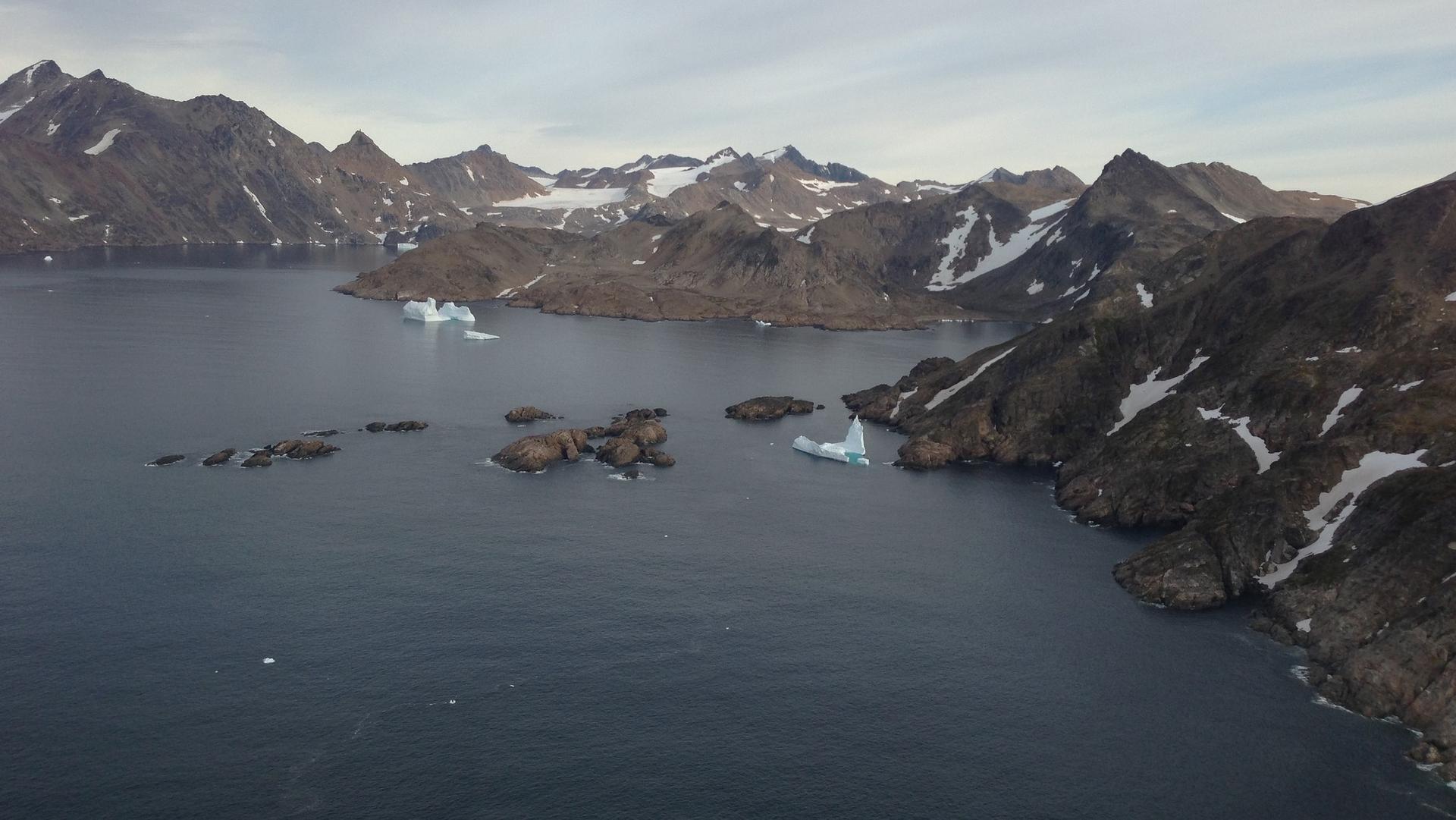How ‘letters to the future’ are putting the spotlight on climate action now
This is an aerial view of Greenland. On the plane home from a conference in Iceland, Trisha Shrum drafted a letter to her baby daughter about her efforts to fight climate change.
For activists Trisha Shrum and Jill Kubit, climate change isn't just an abstract concept. Rather, it has faces and names: Eleanor and Gabriel, their children. And through their time capsule project DearTomorrow, Shrum and Kubit are hoping you’ll connect the planet’s future to your loved ones, too.
DearTomorrow invites people to share letters, photos and videos about how they’re working against climate disruption — the idea being the notes will be seen decades in the future. Shrum got the idea for the project in 2014, on the flight home from a climate change conference in Iceland. At the conference, Christiana Figueres, then head of the United Nations Framework Convention on Climate Change, had given a talk that ended with a haunting story:
“She has this dream where the eyes of these children who are living in the future are looking at her and saying, ‘You knew about climate change. What did you do about it?’" Shrum recalls. Hearing about it, she says, “Something kind of clicked for me.”
At the time, Shrum’s daughter Eleanor was 10 months old. “What would I say to her now?” Shrum remembers thinking on the plane. “And how could I capture this moment of how I feel today about climate change … in a way that she can relate to when she is my age?”
Shrum cracked open her laptop and began writing a letter to Eleanor. “The idea was that she was going to read it, I was going to send it to her, in the year 2050,” she adds. “And I was just writing in a very honest, open way, of everything that I’ve been doing on climate change,” she says.
But even as Shrum wrote about how she’d worked to make a difference, she found herself making excuses for why she hadn’t done more to fight climate change.
“I’ve tried, but, to be honest, I haven’t tried all that hard,” she wrote. “Instead I’ve focused on my own life. I fell in love with your father and got married and had you. Normal, beautiful things. But I stopped trying so hard.”
For Shrum, it was a watershed moment. “When you try to give excuses to your child about why you didn’t protect their future, and why you didn’t enable the best possible world for them that you could, those excuses just fall flat,” she says.
And she began to wonder if the epiphany about her own “climate legacy” could be shared with others. Back at Harvard, where she was a graduate student in public policy, Shrum connected with Kubit, another student who was also interested in finding a way to talk about climate change with people, to show how it's meaningful on a personal level.
By then, she had already spent eight years trying to frame the topic in a way that seemed relevant. “I had always felt like as a movement, as organizations, and as people, we weren’t always talking about it in a way that really, really got to the core of ‘Why are we doing this work?’”
“And the moment I heard this idea — Trisha was like, ‘I wrote this letter, it was a very powerful thing for me.’ I was like, ‘I’m on board, I’ll do anything.’”
Kubit became a co-founder of DearTomorrow. At the time, her son Gabriel was 18 months old, and she had been thinking a lot about what raising a child would be like “in this period of time which is very scary, and also potentially very exciting,” she says.
In a recent letter to him, she explained that the DearTomorrow project was “a small piece [in] trying to get people to take a step back, to reflect about what climate change means and to imagine what the world on the other side looks like.”
Letters, videos and photographs from people around the world are collected on the project’s website. Shrum says they’re looking for an institution to archive the trove of messages as a time capsule, to be exhibited “in 2030 and 2050, and potentially beyond.”
For now, DearTomorrow’s founders are hoping that the project will strike a chord with all types of people, from climate activists to people who may otherwise have a hard time connecting the perils of climate change to their daily lives.
“At the heart of it, this is a storytelling project,” Kubit says.
This article is based on a story that aired on PRI’s Living on Earth with Steve Curwood.
Every day, reporters and producers at The World are hard at work bringing you human-centered news from across the globe. But we can’t do it without you. We need your support to ensure we can continue this work for another year.
Make a gift today, and you’ll help us unlock a matching gift of $67,000!
